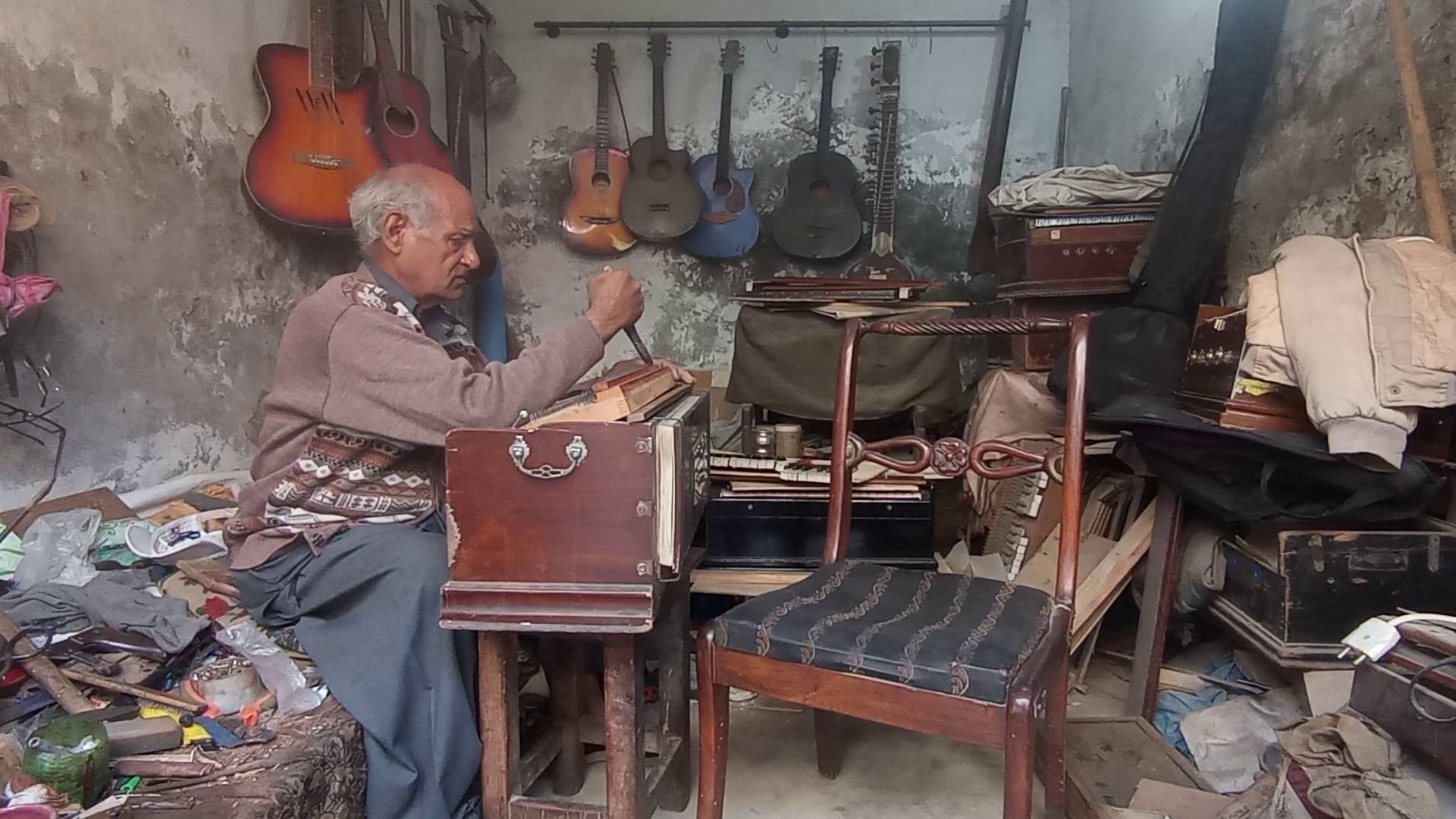
A Century Old Sitar Shop: Our Interview with Muhammad Asif
As we entered Bombay Music Store, we could not help notice the inescapable sense of bitterness and decline which was bound to the very soul of the shop and its aging proprietor, Muhammad Asif. Despite our countless interactions with Lahore’s aging classical musicians who are subject to poverty, mistreatment, and social ostracization, there was something that stood out
At the age of 70, Muhammad Asif is still single-handedly running his family’s music store in Bansanwala Bazaar despite recent bouts of age-related diseases. Founded by his father c. 1925, the store used to sell everything from tanpuras to harmoniums, supplying Radio Pakistan and notable artists with the best stringed instruments of Lahore. Sadly, it has fallen on hard times, with a sharp decline in business since 2000. Instead of the sitars and tanpuras which once filled the shop, one can only see cheap Chinese guitars, which sell better, lining the shop nowadays.
When asked about the origin of the store’s name, a rare smile flashes across his face as he recounts how his father, Muhammad Azim, used to spend much of his time in Bombay. When he started a music shop in Lahore, he wanted to pay homage to the city, resulting in the shop’s unique name. Even though his father himself was a luthier, he narrates how his ancestors used to craft sword sheathes in the Mughal era. Interestingly, another sitar maker in the vicinity, Ziauddin, claims that his ancestors had the same occupation at that time.
Muhammad Asif first learned how to make instruments from his father, and later on went on to specialize in sitar-making. One of his brothers, Muhammad Akram (who died in 2017), used to specialize in making harmoniums while, on the other hand, another of his brothers, Muhammad Alam, was a sitar-player. Muhammad Alam used to teach at Alhamra, and also used to perform on Radio Pakistan, being one of Pakistan’s foremost sitarists.
He believes that Alhamra, for which he has repaired and crafted countless instruments, is an organization which is helping preserve classical music in Pakistan, a stance which in sharp contrast to his overall negativity when asked about other NGOs and the government.
When asked about the chances for the revival of classical music, he is not optimistic. He states that even though there may be some young people who are eager to learn it, there are none who can teach them properly anymore, dooming classical music forever. A prime example are his own children: rather than teaching them his family’s age-old musical traditions, he is happy to see them financially secure due to their government jobs.
Out of all the work he has done in his life, he seems to be the proudest of his work on the sagar veena. He helped lawyer and intellectual Raza Kazim create this novel instrument, which is similar to the chitra veena. It broke new ground in the music industry through its revolutionary design in 1970, which included its sliding bridge, impressive resonance and fretless neck. The fact that he is not given credit for his work on the sagar veena on the internet raises many questions in our minds…
The tone of his final message matched that of his whole interview: he solemnly states that all the old classical musicians are dead, and that there is no longer any chance of survival left for classical music. The old way of making instruments is dying out too, and soon, nothing will be left. Upon this solemn note, he waved us goodbye as we wrapped up our microphones and tripod to return to the noisy street outside.
Save the Sitar is a website dedicated to promoting and preserving Pakistan’s classical music. Join our growing community to help further our cause!
Follow Save the Sitar!
Get new content delivered directly to your inbox.
For those of us who love this instrument, this report is a little sad. I hope classical music is never lost anywhere on the planet.
LikeLiked by 1 person
We agree! It’s disheartening, yet motivating, to experience firsthand the results of classical music’s decline in Lahore.
LikeLiked by 1 person